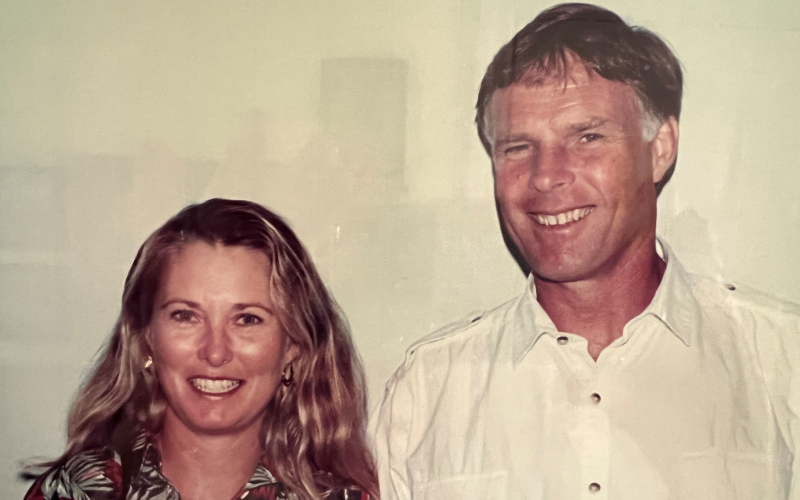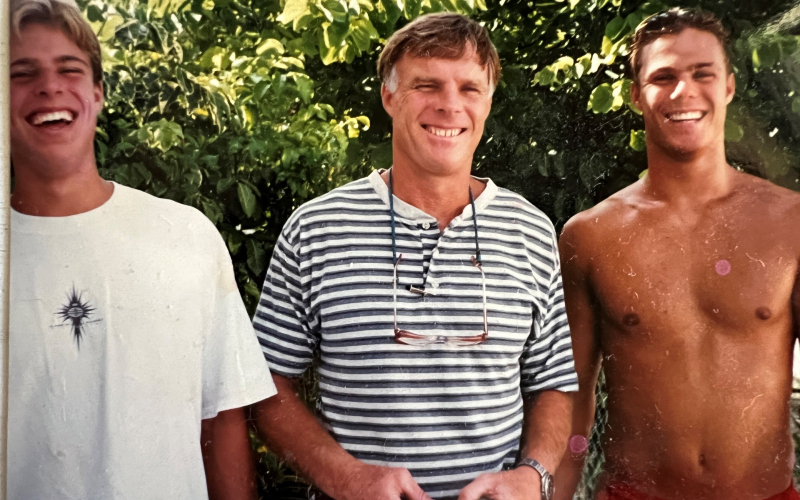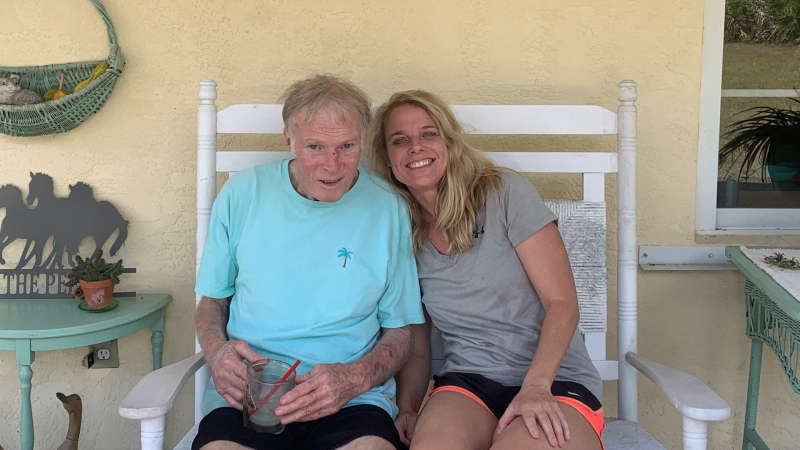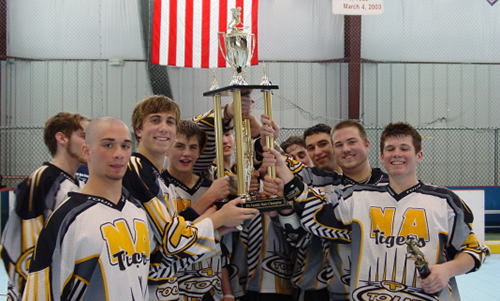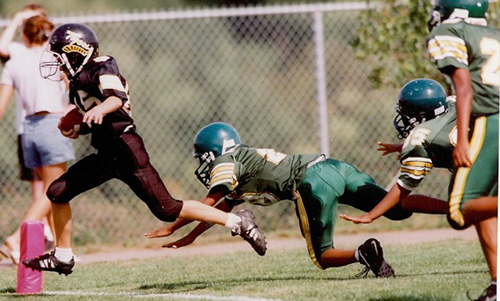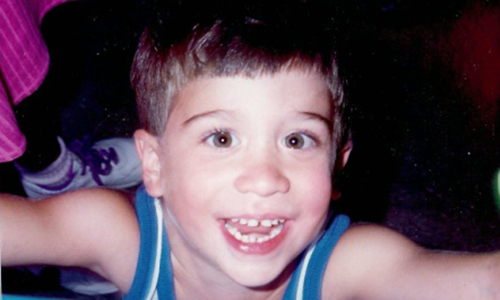Warning: this story contains mentions of suicide and may be triggering to some readers
Mac Parkman was a vibrant human being who embodied the best attributes humanity and God find endearing in this world. Warm, funny, witty, kind, compassionate, calm, loyal, and caring are just a few of the characteristics that can be used to describe this wonderful young man. He brought so much warmth and sunshine to everyone he touched, yet he was a tough competitor… a true peaceful warrior until he left this earth.

Mac was born on March 10, 2003 in Albuquerque, NM, to a loving, blended family. Mac spent his first six years growing up in the foothills to the west of Tijeras, NM. As the “new” kid in the family, he was welcomed warmly by his mom and sisters while his father was overseas participating in the invasion of Iraq. As a newly knit family that had never raised a son or brother, he brought so much love into their lives and brought them closer together with his presence, a gift that the family shares to this day.
Mac was a quiet boy, always wanting to do things and physically active from the start. Track, baseball, karate, and skiing with his dad were his early activities. He loved being active and with his friends, especially when they would eat out in great places like Blakes, Sadie’s, and Hooters afterwards. He was quick to learn and active all the time. Mac enjoyed an early introduction to God at the local Prince of Peace school where he was loved by teachers and students alike, except for a short period where he was known to tackle the other five-year-old kids.
In 2009, Mac moved to Woodland Park with his family and was enrolled in Colorado Springs Christian School system. He lived on a ranch surrounded by forests and became part of the wrestling team in first grade with almost the entire first grade class. He was one of the only kids to continue wrestling. Mac loved the sport and the camaraderie and continued participation until his passing. He had several very close friends, Nathan and Parker, that would attend “cookie church” with him as the local Methodist church had a very elderly congregation that loved to bake. He loved having his friends over to play games, jump on the trampoline, shoot air guns (or real guns on his dad’s range), play tag, and camp out. We could hear them wrestling and bumping around upstairs well into the night.
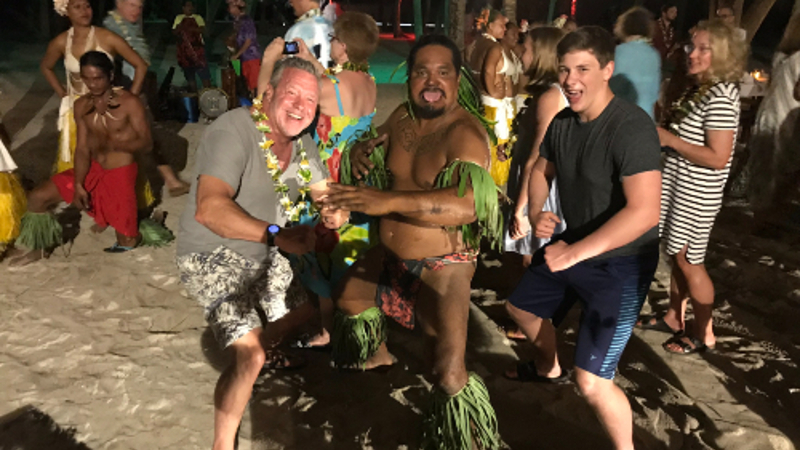
Due to his father’s business activities, Mac fell in love with new places and was always on planes with his dad and family going all over the U.S. and the world. Everywhere he went, he would always want to experience the local culture, food, and sightseeing. He visited Costa Rica, the Hawaiian Islands, Egypt, Finland, Australia, New Zealand, Tahiti, and the UAE. On those trips he rode camels, entered the Great Pyramids, hiked mountains and glaciers, went ziplining, kayaking, scuba diving, snorkeling, practiced skydiving in an indoor skydiving range, and even went skiing in an indoor ski simulator in the UAE desert. He was always interested in what was going on and had a thirst for adventure that never left him.
Mac was also a very active video gamer and loved to game with his friends, both in person and online. Over the years, gaming became one of his outlets. Competition and gaming was very important to him. He developed a close-knit group of friends who competed together and some of the best memories we have of Mac would be his whooping and yelling with his friends while they participated in Apex, Brawlhalla, and Grand Theft Auto.

Most importantly, it was sports that defined who Mac was in his later years. While we knew he loved wrestling, Mac approached us about joining the football team in 7th grade. Of course, we encouraged Mac to be and do what he wanted to do, so he joined the CSCS middle school football team. With wrestling and now football, our family adjusted to a demanding traveling routine that stretched over 10 months of the year with practices, team dinners, and games. We relished every minute Mac was engaged in sports, as we always wanted to support him doing the things he loved. Mac continued this schedule all the way till the end of his junior year when COVID hit and all sports were stopped. This was hard on Mac.
Mac was the consummate team player who gave all he had for the team. While he never was the best player on the team, he always had the best attitude. He had heart, dedication and he really enjoyed participating. Mac loved those wrestling trips where he would be able to stay in a hotel with his teammates and hangout away from his parents.

Mac experienced several high points in high school athletics. His football team went to the state finals and made the playoffs for the first time in years. He also made it all the way to the qualifier for the State Wrestling finals but lost out by one match. He worked hard, left a lot of sweat, and some blood, on the field. We were so proud of Mac. As his wrestling coach said, “it takes talent to win the first round, conditioning to win the second, but heart to win the third. Mac had heart.” He was a true team player and was loved by all his teammates. It was not hard to find out where Mac was, there was usually a group of young men laughing their heads off. Especially on the wrestling team, where the boys had such tight bonds.

Towards the last months of his life, Mac continued to shine as a family member. He spent time at the beach with his friends and his family in Florida and worked hard at school. He also spent a lot of time working out on his own or with friends at the gym. Mac was getting ready to join the Army to follow in his father’s footsteps. On the surface, everything seemed OK. We now know that, while to all of us Mac was…. well Mac, inside he was fighting a daily struggle with mental illness and depression and was determined not to let anyone know.
Mac was a kind, loving, selfless boy. We know he put everything he had into the fight against depression. We wish we knew he was suffering as much as he was, and we encourage anyone struggling with depression or suicidal thoughts to tell someone. Help is available and you are not alone.
We love and miss you every day, Mac.
If you are struggling to cope and would like emotional support, call the Suicide & Crisis Lifeline at 988 to connect with a trained counselor. It’s free, confidential, and available to everyone in the United States. You do not have to be suicidal to call. Suicide is preventable and help is available. If you are concerned that someone in your life may be suicidal, the five #BeThe1To steps are simple actions anyone can take to help someone in crisis.
Are you or someone you know struggling with lingering concussion symptoms or suspected CTE? We support patients and families through the CLF HelpLine, providing personalized help to those struggling with the outcomes of brain injury. Submit your request today and a dedicated member of the Concussion Legacy Foundation team will be happy to assist you. Click here to support the CLF HelpLine.
